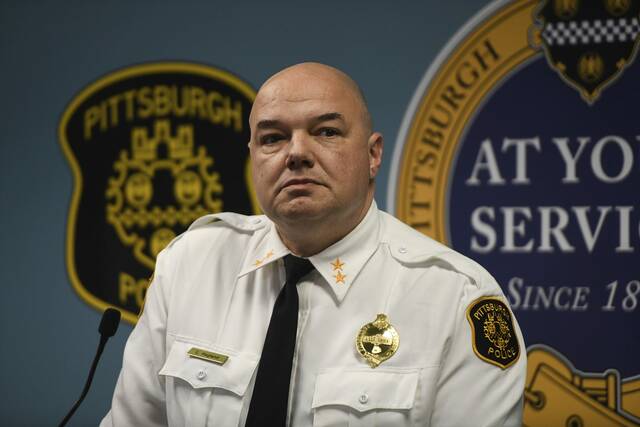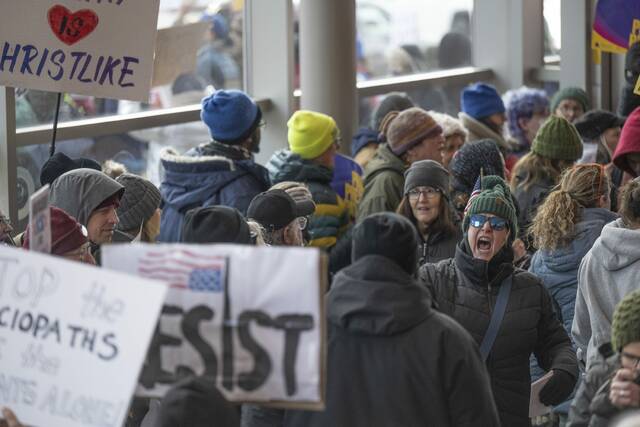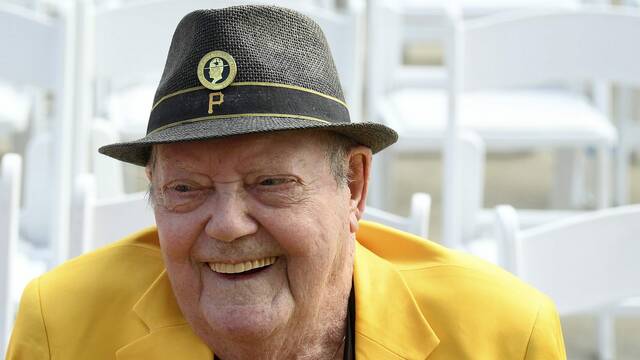It was a day of finger-pointing in Pittsburgh politics.
City leaders blamed each other Wednesday for the abrupt resignation this week of Christopher Ragland, the former assistant police chief and Mayor Ed Gainey’s pick to lead the police force.
Gainey accused City Council members of hounding his nominee until he resigned, portraying Ragland as inappropriately beleaguered by “the relentless attack on (Ragland’s) character.”
“I hope no other chief goes through what Chief Ragland went through,” Gainey said during an afternoon press conference. “I know you’re wise enough, trust me, to read between the lines.”
Ragland, a day earlier, made vague and sweeping insinuations that he was being subjected to unethical “political football” and “pressure for political dealmaking.”
But he provided no details, and it’s unclear what precipitated his departure less than two weeks after he publicly reaffirmed that he still wanted the job.
There were indications he might have been referring to a meeting weeks ago involving two council members, Ragland, now-Acting Chief Martin Devine and Public Safety Director Lee Schmidt.
Those council members, Anthony Coghill and Theresa Kail-Smith, bristled at any suggestion of impropriety and said they did not exert any political pressure.
In Coghill’s telling, Ragland asked who the councilman would consider to be the kind of police leaders he would want to see.
The Beechview Democrat told TribLive he gave names — which he declined to reveal — and said his vote for Ragland would depend on the chief naming experienced officers to command positions. The councilman, however, denied demanding that specific people fill the positions in exchange for his vote.
Coghill acknowledged providing his “two cents” but called the conversation similar to those with Ragland’s predecessor, Larry Scirotto.
Kail-Smith, D-West End, denied there was any quid pro quo involving swapping her vote for Ragland to become chief in exchange for influence over filling top police posts.
“This is a spin for the media and everyone’s going for it,” Kail-Smith told reporters outside council chambers.
Gainey, however, called the conversations between council members and Ragland “inappropriate” and “wrong.”
“Councilman Coghill said today, ‘I asked him some questions about who he would have around, who I thought would be appropriate.’ I think that confirms exactly what the chief said,” Gainey said.
Asked repeatedly for details, Gainey declined to provide any.
“They know what they asked him about,” Gainey said. “The blame is squarely on them. And that’s where the blame should be.”
The mayor said he would not discuss what Ragland had told him in private.
Inside council chambers, it was hardly more harmonious.
Councilwoman Barb Warwick, D-Greenfield, criticized her colleagues “who we know have been planning for weeks to slow this appointment down as much as possible.”
Warwick said she felt the delays hindered Ragland’s ability to do his job.
“Ultimately, the prospect of confirmation was pushed weeks and then months away,” Warwick said.
Ragland’s sudden departure set back efforts to provide steady leadership at the bureau, which has now been run by five people during Gainey’s tenure.
Most recently, Scirotto resigned in October amid controversy after an 18-month tenure that was preceded by an expensive and exhaustive national search.
Ragland, a 30-year veteran, quickly became Gainey’s top choice to replace Scirotto. But his push to move quickly generated blowback from some council members and activists, who wanted to slow the process and solicit more public input.
A bill introduced in council after Gainey tapped Ragland would mandate six public meetings, one in each police zone, for any police chief nominee.
On Wednesday, Coghill made clear his feelings about Ragland.
“Good riddance, I say,” Coghill said. “He was never cut out for the job, let’s face it.”
Coghill said he believes no new chief should be appointed until after voters decide who will lead the city for the next four years.
Ragland has not responded to multiple texts and phone calls seeking comment. Neither have the police bureau’s two spokeswomen.
Turmoil in the police bureau couldn’t come at a worse time for Gainey, who is seeking reelection to a second term in a hotly contested Democratic spring primary that pits Gainey against Allegheny County Controller Corey O’Connor.
Two Republicans, including a former Pittsburgh police officer, also are running.
The mayor on Wednesday stood by Ragland. He said he believed Ragland’s accounting of events and commended him for his “integrity” in walking away under the circumstances.
For members of the 758-strong police bureau, Ragland’s announcement was deja vu. Just four months earlier, they had gone through another sudden leadership change when Scirotto left.
His resignation, however, came after drawing criticism for resuming a part-time job of refereeing NCAA basketball games while still police chief.
Council believed his moonlighting was on hold.
But Gainey and Scirotto agreed privately that Scirotto could return courtside. Ragland was tapped to run the bureau while Scirotto was officiating.
Gainey on Wednesday denied that there had been a secret deal with Scirotto.
“There was no handshake deal,” Gainey said. “That’s not true.”
When asked whether he disagreed with statements his top officials made to council confirming such an agreement, Gainey then acknowledged he had told Scirotto the two could talk about a return to officiating once the city’s homicide rates dropped.
Scirotto could not be reached Wednesday for comment.











